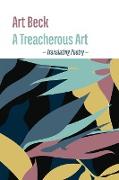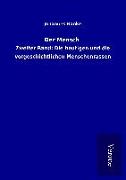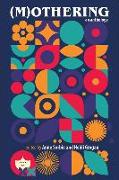A Treacherous Art
BücherAngebote / Angebote:
These pieces are selected from a steady series of essays and reviews I found myself publishing in the late aughts of the still early century. It was a period in which I was translating poetry, not so much as a specific translation "project, " but as an extension of writing poetry. And as an interactive means of reading poetry.
My impetus for writing prose on translated poetry was explorative, not didactic. During that period, I eventually published three translation collections from three very different cultural periods. In 2012, the 91 extant poems of Luxorius, a sixth century C.E. Latin epigramist, writing in Vandal-occupied North Africa at the dawn of the Dark Ages. This segued into a multi-year delve into Martial, and culminated in a good-sized, 2018 selection. And, concurrently, beginning with a chapbook in the late '70s, I'd been translating Rilke, finally publishing an extensive selection in 2020.
One can happily and productively write poetry without too much theorizing. In fact, at least in our era's thinking, the best poems spring from need not theory. Even successful formalists utilize form as vehicle, not inspiration. But when you find yourself wanting to translate poetry into poetry, you can also find yourself in an anarchic unmapped landscape, navigating a cliff's edge in the fog between languages. When translating established classics, "do no harm" isn't a concern. But "don't do anything stupid" is a prime directive. All other rules spring from that. The "translation police" exist, but they're not so much to be feared as one's internal gestapo. So, many of these pieces served as negotiations with myself for permission. Some make repeat visits to the poets above for multiple looks. But from somewhere over the years, Catullus also kept showing up. I welcomed and re-welcomed those visits. (Art Beck)
Folgt in ca. 10 Arbeitstagen




